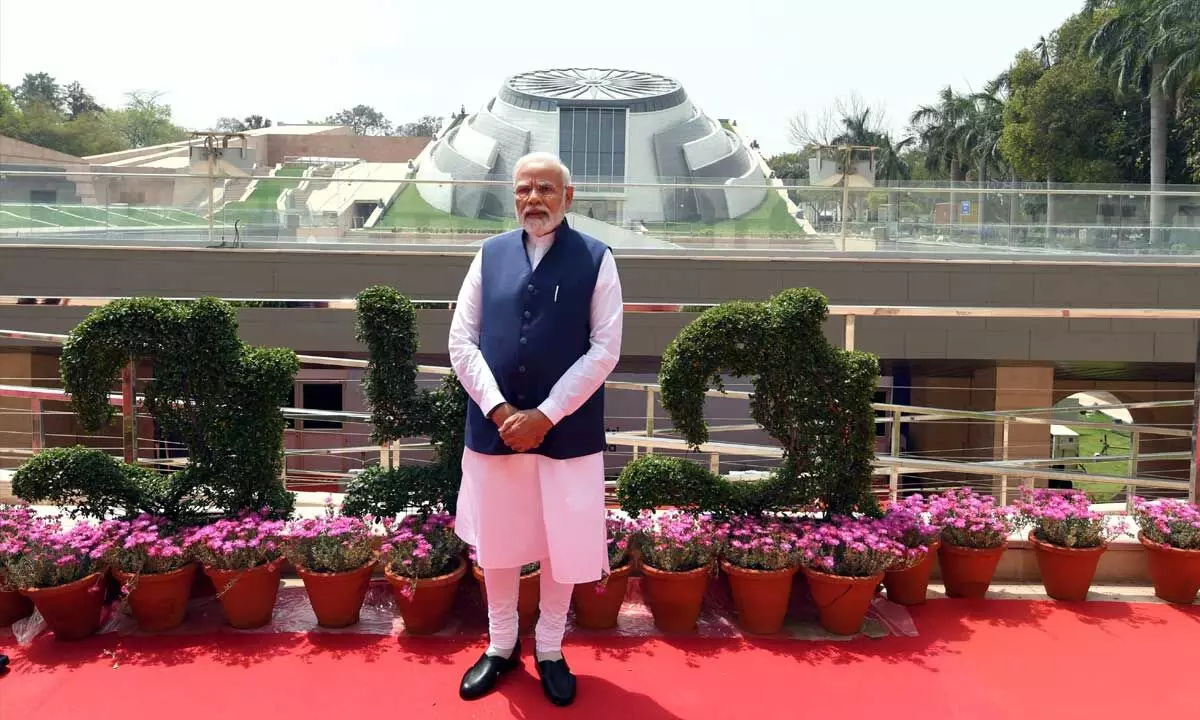While addressing at the inauguration of the Museum on Prime Ministers in New Delhi on Thursday, Prime Minister Narendra Modi said that every Prime Minister had contributed to accomplishing the ideals of a constitutional democracy and that remembering them was to know the path of Independent India.

Mr. Modi opened the museum dedicated to previous Prime Ministers created at Teen Murti Estate, the house of Jawaharlal Nehru, which was turned into the Nehru Memorial Museum and Library (NMML) following his death, on the birth anniversary of B.R. Ambedkar. Mr. Modi stated that the museum will serve as an inspiration for the country’s 75th anniversary celebrations.
“Every government created in Independent India has helped to bringing the nation to the heights it is at now,” he said, adding that visitors to the museum will learn about the contributions, backgrounds, and hardships of past Prime Ministers.
Mr. Modi expressed satisfaction in the fact that many of the Prime Ministers were from “ordinary households.” “It also instils confidence in the young of the country that anyone born into a poor household can get to the top in India’s democratic system,” he added.
“With a few exceptions,” Mr. Modi added, India has a strong heritage of promoting democracy.
According to a release, the museum is extended over 10,491 square metres and cost Rs 306 crore. It is located on the Teen Murti Estate, which was Nehru’s residence for 16 years. According to a government statement, work on the museum began in October 2018 and no trees were destroyed or transferred from the site. There are 43 galleries dedicated to previous Prime Ministers’ lives and tenures, as well as a sound and light performance.
Union Culture Minister G. Kishan Reddy had earlier claimed that the museum was a live symbol of Indian democracy and that a person from a humble household could become the country’s Prime Minister.
The museum, according to Nripendra Misra, head of the NMML executive council, is a “work in progress.” He said that prior Prime Ministers’ families have contributed items such as Atal Bihari Vajpayee’s Bharat Ratna award.
While all past Prime Ministers’ families were invited, family members of Lal Bahadur Shastri, Atal Bihari Vajpayee, Chandra Shekhar, and Morarji Desai were among those who attended the opening event. Sonia Gandhi, the Congress president, and former Prime Minister Manmohan Singh, who had expressed worry over the alterations at NMML when the PMs’ museum project began in 2018, were among those who did not attend.
The museum, according to Adarsh Shastri, a Delhi Congress spokesman and the grandson of Lal Bahadur Shastri, is long overdue. “The contribution of each Prime Minister is obvious. If it gets politicised, it will be awful,” he remarked. Mr. Shastri went on to say that his family had donated the charkha that had been presented to Lal Bahadur Shastri as dowry, as well as his badminton racket and a passbook from his Punjab National Bank account. These products, on the other hand, had not yet been presented.
When asked about the former Prime Ministers’ museum, Congress spokesperson Supriya Shrinate said that while previous governments wanted to write history by addressing basic issues like education, health, and social justice, the Narendra Modi government wanted to make history by constructing buildings and undertaking beautification projects.
Ms. Shrinate further claimed that the Modi government’s history began on May 14, 2014, when he took the oath of office as Prime Minister.
